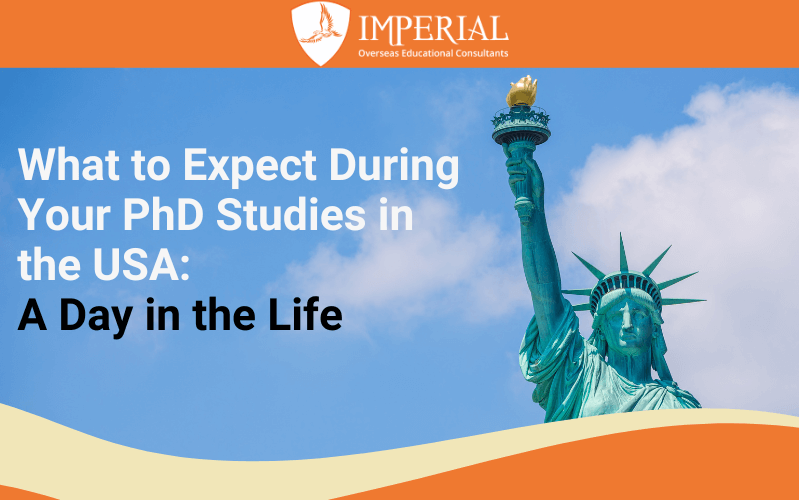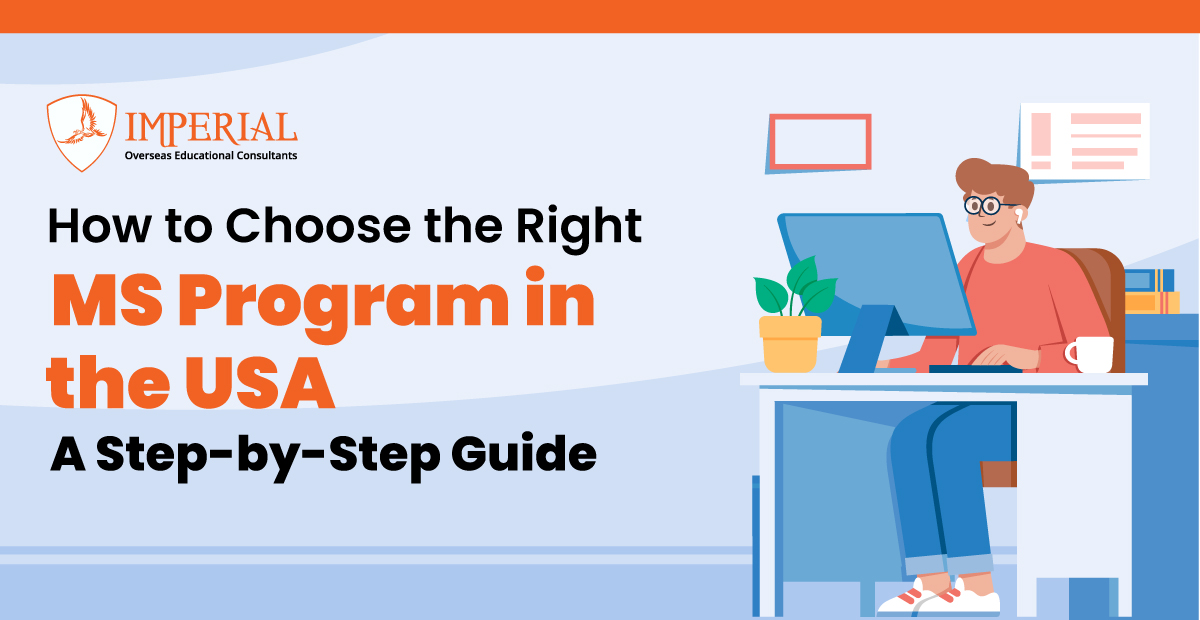
What to Expect During Your PhD Studies in the USA?: A Day in the Life
Introduction
Pursuing a PhD in the USA presents Indian students with an opportunity to be academically challenged and gain comprehensive exposure to research and culture. With over 40% of the future scholars arriving in the USA for doctoral degrees being Asians, it is evident that the USA is a top choice for scholars worldwide. But what does a typical day look like for a PhD student? Can you imagine the common schedules, difficulties, and even joyful moments of life if you’re studying for a PhD in the USA? Here’s a look into a PhD student’s life from an Indian perspective.
1. Early Morning Routine: Preparing for a Productive Day
A normal working day for a PhD student begins in the morning, setting a solid foundation for the rigors of the program.
- Time for Focused Planning: PhD students often start their day by scheduling tasks, setting goals, and organizing daily objectives.
- Quick Catch-Up on Research News: Updating themselves on current publications and field updates helps students stay informed and sharp.
- Healthy Start: A nutritious breakfast alongside planning the day’s activities is a common routine.
Starting the day with purpose and structure is crucial, as an Indian student’s daily life involves balancing scholarship, coursework, and teaching—essential components for anyone pursuing a PhD in the USA.
2. Lab or Library Hours: Diving into Research and Discovery
Research hours are when the magic happens. For many PhD students, this is the heart of their day, filled with in-depth exploration and discovery.
- Lab or Fieldwork: For students in STEM fields, lab work is a significant portion of the day, involving hands-on experiments and data analysis.
- Library Sessions: Humanities students often spend hours in the library gathering resources or drafting thesis sections.
- Collaborative Work: Group meetings with fellow researchers and professors provide feedback and encourage innovative ideas.
With access to advanced research facilities, PhD students in the USA immerse themselves in a rigorous, rewarding process that builds expertise and prepares them for professional success.
3. Lunch and Networking: Building Connections
Midday isn’t just a lunch break; it’s an opportunity to form connections that enhance a student’s academic journey.
- Networking Opportunities: Lunch breaks are popular among students as a time to meet friends, attend informal meetings, or join department activities.
- Seminars and Lectures: Guest lectures on topics like Artificial Intelligence or Climate Policy are often held during lunch hours, offering students valuable insights.
- Mentorship and Collaboration: Many PhD students seek out mentors who guide them on career paths in academia, business, or research.
These interactions allow students to build professional contacts and friendships that will benefit them long after their PhD.
4. Afternoon: Teaching, Tutoring, and Course Work
Afternoons are often packed with teaching duties, coursework, and career preparation activities.
- Teaching Assistantship (TA): Many PhD students take on TA roles, where they lead classes, lectures, and grade assignments for undergraduate students.
- Skill Development: Workshops on data analysis, coding, or academic writing help students develop their teaching and research skills.
- Balancing Coursework and Research: First- and second-year PhD students balance coursework with research, requiring careful time management.
Teaching roles provide not only a source of income but also valuable experience that strengthens their academic profile.
5. Evening Reflection and Personal Time: Balancing Work and Life
Evenings offer a chance for reflection and relaxation, maintaining a balance between academics and personal well-being.
- Reflection Time: Some students review daily achievements and note ideas they want to explore further.
- Social Life and Hobbies: Evenings may include personal hobbies, socializing, or cultural activities, making for a balanced day.
- Academic Planning: By planning for the next day, students can engage consistently in research without feeling overwhelmed.
Balancing work and personal life is essential when studying for a PhD in the USA, helping students stay focused and motivated in reaching their long-term goals.
Ready to embark on your PhD journey in the USA? Let Study Abroad Consultants guide you every step of the way! From selecting the right program to navigating scholarships and visas, we’re here to make your dream a reality. Contact us today for personalized support and expert advice!
FAQs
Doing a PhD in the USA is like being on a long, tough adventure. It usually takes around 5-7 years, with lots of classes, research, and sometimes teaching. It would help if you stayed super focused and organized because there’s a lot of work to do on your own. It’s challenging, but people who are determined find it really rewarding.
Teaching experience, or being a TA (teaching assistant), is really helpful. It’s a chance to teach classes, get paid, and learn important skills. Many Indian students like TAs because they let them try out teaching and help them with their future careers.
Yes! Lots of PhD programs give scholarships, assistantships, and grants, so you don’t have to pay for everything yourself. If you’re doing research or teaching, they often help cover tuition and living costs, which can make things much easier.
Networking, or meeting people, is a big deal in the USA. PhD students can join conferences, seminars, and department events to meet professors, other students, and professionals. These connections can help Indian students find jobs or research opportunities after they finish their studies.



